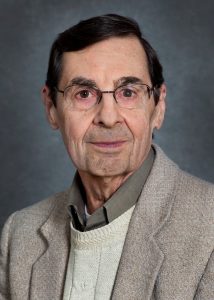 Elton Cairns on life before, during, and after COVID-19
Elton Cairns on life before, during, and after COVID-19
To round out our series, The ECS Community Adapts and Advances, we checked in with Past ECS President Elton J. Cairns, who has been a member of the Society since 1961. Over his 60+ years with ECS, he was active in the Niagara-Mohawk Section; served on many Society and division committees; was Battery division editor; held all the offices of the Physical Electrochemistry division (Chairman, 1981-1983); organized Society meeting symposia; and was elected Vice-President (1986) and President (1989-1990). Dr. Cairns received the Turner Book Prize in 1963 and was elected Fellow of The Electrochemical Society in 1991. All of this on top of teaching, mentoring, and making important contributions to science! He is Professor of the Graduate School, Berkeley College of Chemistry, University of California, Berkeley, U.S.
Life outside the lab
“We have been in shut-down for over a year without access to the lab—even though now I am vaccinated. I have been active working with some grads and postgrads through Zoom. Mostly I help them with articles they seek to publish. As for my own work, I filled the year with activities related to publishing—the nuts and bolts of the publishing process. I stay in contact with colleagues around the world through Zoom and Skype. (more…)

